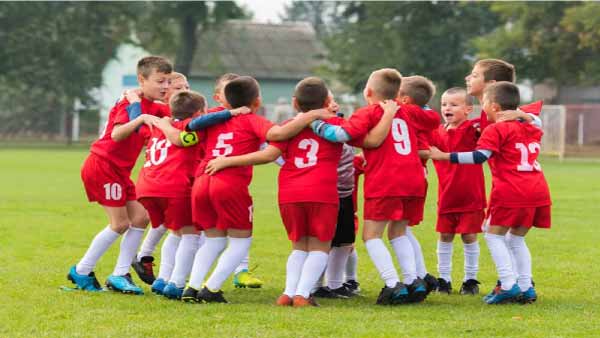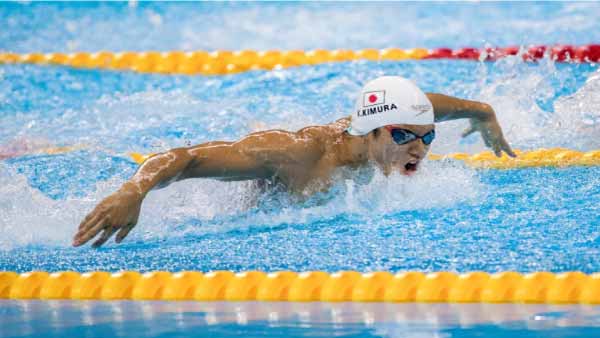Teamwork is essential in team sports, as it allows players to communicate, coordinate and collaborate to achieve a common goal: winning the match. Here are a few reasons why teamwork is so important in team sports:
Synergy
Teamwork can create a synergy that leads to a collective performance far greater than the sum of individuals. When players work together and trust each other, they can play with more confidence and motivation, which can lead to better performance.
Complementarity
Each player on a team sports team has unique skills and strengths. By working together, players can leverage these strengths and complement each other. A fast player can work together with a stronger player to score goals, for example.
Clear roles
When a team works well together, each player understands their role and responsibilities in the team. This can help minimize role overlap and ensure that each player is doing their part to contribute to the team’s success.
Communication
Effective communication is crucial in team sports. Players must be able to communicate clearly and effectively to coordinate their efforts. Teamwork fosters communication and helps players develop a common vocabulary so they can better express themselves on the court.
Emotional support
In team sports, players often face emotional ups and downs, such as stress or frustration. When a team works well together, players can support each other emotionally, which can help maintain motivation and commitment.
In short, teamwork is essential for team sports, as it allows players to play with confidence and motivation, leverage each player’s unique skills and strengths, establish clear roles, communicate effectively, and support each other emotionally. All this can lead to a collective performance far greater than the sum of individuals.
Synergy
Synergy is a term that refers to the interaction or combination of different elements, which together produce an effect greater than the sum of their individual parts. In the context of teamwork, synergy refers to collaboration and cooperation among team members, leading to collective performance superior to what each member could achieve on their own.
Synergy can be achieved when team members work together effectively, leveraging their unique skills and strengths to achieve team goals. When team members communicate effectively, coordinate, and support each other, they can overcome obstacles and challenges that may arise along the way.
Synergy can also be fostered by a positive work environment and a strong team culture, where team members feel motivated and committed to team success. When synergy is achieved in a sports team, it can lead to exceptional collective performance that can outperform even teams with individually more talented members who don’t work well together.
Complementarity
In the context of teamwork in team sports, complementarity refers to the idea that team members have unique skills and strengths that complement each other. Each player has a specific role in the team and brings something different that helps improve the performance of the team as a whole.
For example, in a football team, one player may have great goal-scoring ability, while another player may have great dribbling speed and ability. If these two players work together, they can complement each other to create scoring opportunities and score more points.
Complementarity can also be applied to the personality and playing style of team members. For example, one player may be very aggressive on the court, while another player may be calmer and more reflective. If these two players work together, they can balance their playing styles to create a more balanced and well-rounded team.
In general, complementarity is essential to team success in team sports. By leveraging each player’s unique skills and strengths, the team can function more effectively and improve their overall performance.
Clear roles
In team sports, clear roles refer to team members’ understanding of their specific roles and responsibilities within the team. When each player clearly understands their role in the team, they can focus on accomplishing their tasks and contributing to the success of the team as a whole.
Clear roles also help minimize overlap of tasks and ensure that each player is doing their part to contribute to the team’s success. For example, on a basketball team, one or two players may be responsible for most offensive plays, while other players may be more focused on defense. Each player must understand their role and work to fulfill their specific responsibilities to help the team as a whole.
In addition, clear roles can also help create a positive team culture by fostering collaboration and trust among team members. When players trust their teammates to fulfill their roles and responsibilities, they can focus on their own role and work together more effectively.
In short, clear roles are essential to team success in team sports. When each player understands their specific role and responsibilities, they can effectively contribute to the success of the team as a whole and foster a positive and collaborative team culture.
Communication
Communication is fundamental to the success of teamwork in team sports. In the context of sport, communication refers to the ability of team members to exchange information and coordinate in real time during play.
Effective communication can help improve team performance in several ways. First, it can help team members coordinate and work together more effectively. For example, on a football team, verbal and nonverbal communication between players can help ensure that passes and plays go smoothly.
In addition, communication can also help improve decision-making. During a game, players must make quick and effective decisions about how to play the ball, who to pass to, etc. Communication between team members can help ensure the best decisions are made in real time.
Communication is also important to maintain team motivation and cohesion. When team members communicate effectively and constructive feedback is provided, they can feel more involved and committed to team success.
In short, communication is essential for teamwork in team sports. By enabling team coordination, decision-making, and motivation, effective communication can significantly improve overall team performance.
Emotional support
Emotional support is an important element in teamwork in team sports. Refers to the ability of team members to provide each other with comfort, encouragement, and emotional help in times of stress or difficulty.
In team sports, players can experience a variety of intense emotions, such as frustration, disappointment, anxiety, and pressure. Emotional support among team members can help alleviate these emotions and reduce stress.
Emotional support can also help strengthen team cohesion. When team members provide emotional support to each other, they can feel closer and more committed to the team’s success.
In addition, emotional support can also help improve team performance. When players feel emotionally stable and supported, they can focus better on their game and perform better on the court.
In short, emotional support is a key component of teamwork in team sports. By helping to relieve stress, strengthen team cohesion, and improve player performance, emotional support can contribute significantly to the success of the overall team.
Win
Winning is one of the main goals in competitive sports, and is the desired outcome for any team participating in a competition. In this sense, winning can provide a sense of satisfaction, pride, and accomplishment for team members.
However, it is important to remember that the end result is not everything in team sports. It is equally important to focus on the teamwork process and the effort each team member has put into improving their individual skills and contributing to the success of the overall team.
In addition, focusing solely on winning can lead to an “all or nothing” mentality that can have negative effects on team motivation and performance. If a team focuses too much on winning and fails to achieve its goal, it can demotivate players and diminish their confidence. On the other hand, if the team focuses on improving and working together to achieve their long-term goals, they can build a stronger, more sustainable team mentality that allows them to tackle challenges more effectively.
In short, winning is important in team sports, but it should not be the only goal. It is equally important to focus on the teamwork process and the effort each team member has put into improving their skills and contributing to the team’s success. A balanced approach to process and outcome can help foster long-term team motivation and performance.


